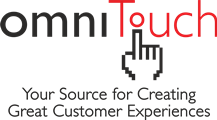We all took a personality test, so how do we use what we learned in our coaching conversations?
That’s what the Customer Service Manager asked me during a training program on coaching.
“We all took a personality test and I am like this ___ and my colleague is like that ___, So how do we bring the results of our personality tests into the quality coaching conversation?”
That’s a fair question.
One I hear now and then in our coaching classes.
So I asked this question in return
Generally in Customer Service communication, I advise folks to not answer a question with a question.
That approach can be rude – even aggressive.
But my intention in answering a question with a question here was to get us all to dig more deeply into what the answer might be.
Here’s what I asked –
“Before we get into the specifics of the coaching conversation, can you talk to each other about the ways you’re already using what you learned from the Personality Test in all of the other conversations that you’re having with the people around you?”
I continued…
“Because the quality coaching conversation is only one of many possible conversations you’re having with your people throughout the day.
For example, you might share with a Team Member that you observed something good or you observed something not so good.
Perhaps you praised something or provided guidance on a task. Maybe you asked someone to stay late if they could. You might have even given a formal performance review.
So stop now and ask yourselves – how have you used what you learned in the personality tests in any of these other conversations?”
Your answers here will serve as are clues to how you can apply what you know about someone in a coaching conversation.”
The room got quiet and I bet you can guess why
 It turned out that taking the personality test was kind of fun.
It turned out that taking the personality test was kind of fun.
And learning about what kind of people we were was also kind of fun.
But what folks had learned about each other hadn’t been put into any kind of formal practice.
It had been treated like a parlor game.
And wasn’t appearing in any of the conversations that people had with each other.
It’s important to get to know the people you work with on an individual level
As you learn about the people you work with – and they learn about you – the decisions you make mutually about working together apply to the entire relationship.
To all the conversations that you have. Not just the coaching conversation.
This ‘aha moment’ for the group completely changed the question.
From “How can we use what we learned from our Personality Tests in a coaching conversation?” to “How can we use what we learned in our Personality Tests to improve and build our relationship with each other?”
And I admit that made me smile.
https://www.omnitouchinternational.com/dear-trainers-engagement-shouldnt-be-the-goal
Thank you for reading!
Thank you for reading this article today!
If you’d like to stay up to date on our articles and other information just send over your email address or add it to the contact form on our website.
Thank you!
Daniel Ord
www.omnitouchinternational.com
Photo by Nguyen Dang Hoang Nhu on Unspla









 But Employer intention matters.
But Employer intention matters.


 Over the course of a few small pages – in her painstakingly beautiful handwriting – she had written down about a dozen quotes.
Over the course of a few small pages – in her painstakingly beautiful handwriting – she had written down about a dozen quotes. When it comes to human frailty, foibles & emotions, there’s nothing new under the sun.
When it comes to human frailty, foibles & emotions, there’s nothing new under the sun.